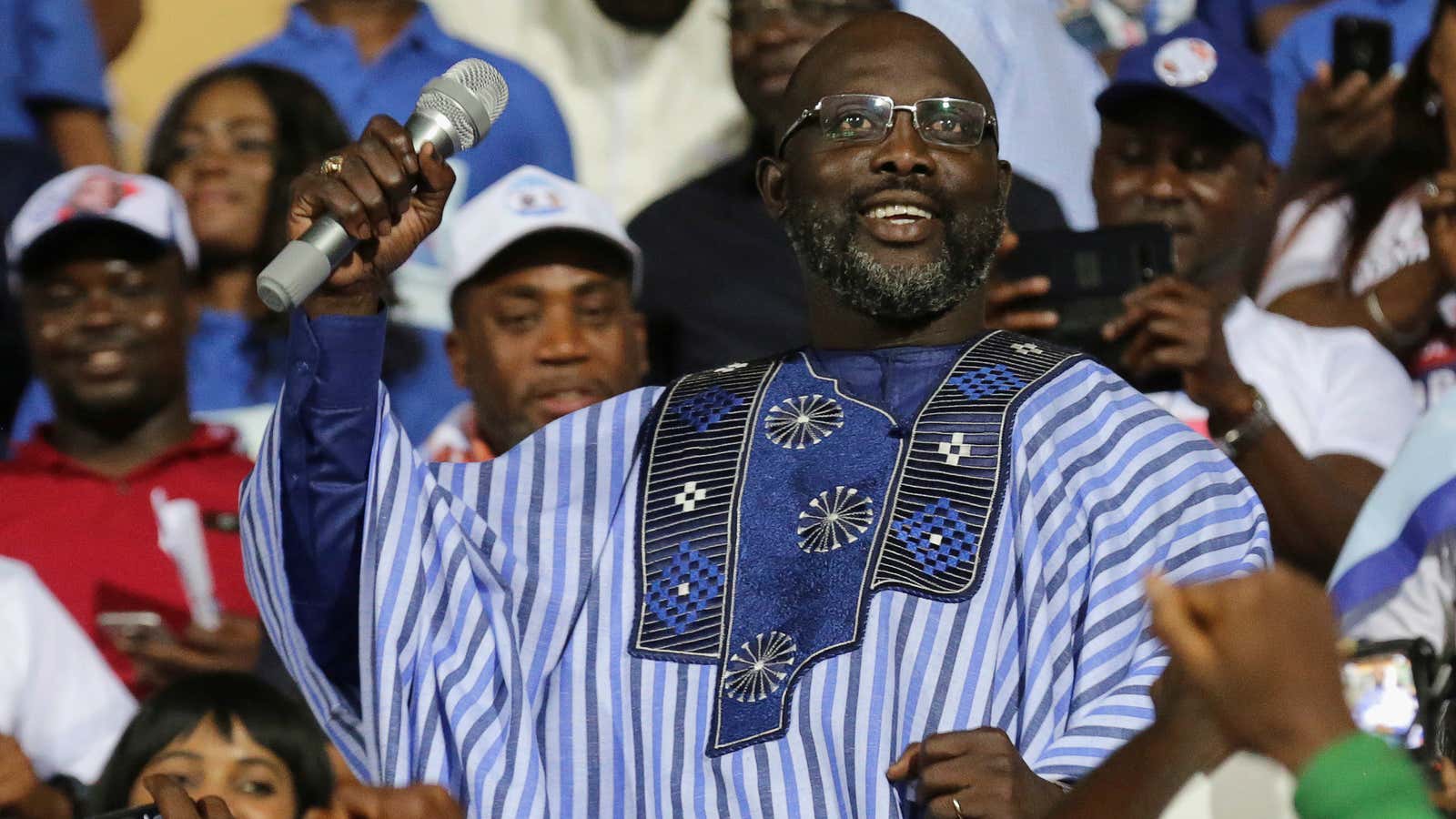Liberia has elected former soccer star George Weah as its new president following a run-off election.
Weah, 51, won the polls with 61.5% of votes and will be sworn in on Jan. 22 2018 when president Ellen Johnson Sirleaf’s term expires. The event will be significant as it will be Liberia’s first democratic transfer of power since 1944.
Weah’s victory at the polls comes after his third attempt having first contested back in 2005 and again in 2011, as the vice-presidential candidate under Winston Tubman. Weah was up against Joseph Boakai, Liberia’s vice-president since 2006. Boakai had also served as Liberia’s minister of agriculture in the 1980s. Boakai, 73, campaigned on the back of the incumbent government’s achievements and his superior leadership. But it failed to resonate with most of the electorate however, with Weah winning in most of Liberia’s counties. Weah’s positioning and rhetoric as an outsider up against the Liberian political establishment proved far more effective.
Both men first went up against each other on Oct. 10 but, as neither was unable to secure a 50% majority vote despite Weah’s early lead, a second round run-off was scheduled for Nov. 7. Following allegations of electoral fraud in the first round of voting, Liberia’s Supreme Court delayed the run-off to allow the country’s electoral commission investigate the claims. The run-off finally went ahead on Dec. 26. The postponement and rescheduling of the elections may have taken its toll though and resulted in low voter turnout. Only 1.1 million people voted in the run-off—900,000 less than the first round of voting.
Crucially though, despite early fears of possible violence, the election has been credited as being orderly. The Carter Center observed the election and attributed its transparency to the supervision of party agents from both parties across polling units to ensure compliance with electoral laws. Former Nigerian presidents Olusegun Obasanjo and Goodluck Jonathan as well as former Ghanaian president John Mahama were also among the election’s observers.
President-elect Weah has long been a prominent public figure in Liberia largely thanks to his former hugely successful career as a professional footballer. He gained global acclaim in 1995 when he won the Ballon d’Or and FIFA World Player of the Year awards . He remains the only African to do so. He played a prominent role with the Liberian national soccer team, first serving as captain and later as manager.
Weah will be taking over a country still recovering from a devastating Ebola outbreak in 2014 which claimed more than 4,000 lives. In addition to boosting healthcare and providing basic amenities, Weah will also be tasked with tackling unemployment.
